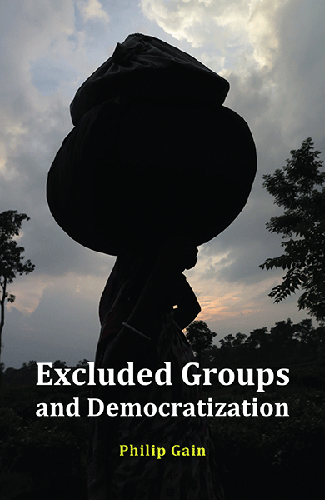নাগরিক বিবৃতি – হবিগঞ্জের চান্দপুর চা বাগানের কৃষিজমিতে অর্থনৈতিক অঞ্চল প্রতিষ্ঠার সিদ্ধান্তে গভীর উদ্বেগ
চান্দপুর চা বাগানের মোট ৩ হাজার ৯৫১ একর জমির মধ্যে ৯৫১ একর চাষাবাদের জমি। অনুসন্ধানে আমরা জেনেছি যে সব শ্রমিক পরিবার বর্তমানে এ জমি চাষ করছে তাদের পূর্বপুরুষেরা প্রায় দেড়’শ বছর আগে থেকে চা বাগানের জমি তৈরির পাশাপাশি আবাদী জমিও তৈরি করে। সেই থেকে তারা এ জমি চাষাবাদ করছে। এ জমিতে উৎপাদিত ফসলে তাদের সংসার চলে। এ জমি ব্যবহারকারী অনেক পরিবার আছে যাদের চা বাগানে কাজ নেই। ফলে তাদের জীবন চলে এ জমির উপর নির্ভর করেই। আমরা মনে করি চান্দপুর চা বাগানের শ্রমিকদের সাথে পর্যাপ্ত আলোচনা না করে এবং তাদের অর্থনৈতিক ভাগ্য বিবেচনায় না এনে সরকার কৃষিজমি হস্তান্তর করে চা শ্রমিকদের প্রতি অবিচার করেছে। আমরা দেখেছি জমি রক্ষার চেষ্টায় চান্দপুর চা বাগানের হাজার হাজার মানুষ কৃষিজমিতে ১৩ ডিসেম্বর থেকে প্রতিদিন প্রতিবাদ সমাবেশ করছে।
আমরা চা শ্রমিকদের ব্যবহৃত কৃষিজমিতে অর্থনৈতিক অঞ্চল করার ব্যাপারে চা শ্রমিকদের সাথে পূর্ণাঙ্গ ও খোলামেলা আলোচনার জন্য সরকারের প্রতি আহ্বান জানাচ্ছি। অর্থনৈতিক অঞ্চল দেশের অর্থনৈতিক প্রবৃদ্ধির জন্য গুরুত্বপূর্ণ। কিন্তু দেশের প্রান্তজন চা শ্রমিকদের প্রতি কোনো অন্যায় যাতে না হয় তার জন্য আমরা সরকারের প্রতি অনুরোধ জানাচ্ছি। অর্থনৈতিক অঞ্চল যেমন গুরুত্বপূর্ণ, তেমনি কৃষি ও অন্যান্য উৎপাদনশীল খাতও জাতীয় অগ্রগতির জন্য সম-গুরুত্বপূর্ণ। তাই অর্থনৈতিক অঞ্চল প্রতিষ্ঠা এবং এর প্রয়োজনে জমির সাশ্রয়ী ও ন্যায্য ব্যবহার নিশ্চিত করার লক্ষ্যে একটি বৃহত্তর জাতীয় আলোচনা সূচনা করার জন্য সরকারকে অনুরোধ করছি।
স্বাক্ষরকারী
১. হোসেন জিল্লুর রহমান
২. হামিদা হোসেন
৩. আনু মুহাম্মদ
৪. খুশি কবির
৫. শহিদুল আলম
৬. জ্যোতির্ময় বড়–য়া
৭. রেহনুমা আহমেদ
৮. তানজিম উদ্দিন খান
৯. শামসুল হুদা
১০. হাসনাত কাইয়ুম
১১. ফিলিপ গাইন
পিডিএফ ভার্সন [ ডাউনলোড ]

Excluded Groups and Democratization
Economic progress that Bangladesh has made in recent times is well appreciated around the world. The extreme poverty has also significantly decreased. Yet there are socially and economically excluded groups of people for their identity, captive situation, and various other reasons. Many of these excluded groups live on the fringe of the country, deprived of equal opportunities and facing wide-ranging social, economic and political problems.
By Philip Gain, English | PBK 80 pages, 2015 | Price: Tk. 150 US$5
Lack of political protection is a common problem that the religious minorities and excluded groups face in Bangladesh where ‘Islam’ is the state religion and all people are identified as ‘Bangalees’. Besides, the ethnic conflicts between the indigenous peoples and the Bengalee settlers in the Chittagong Hill Tracts (CHT) have not been resolved. Explaining factualevidences, the author also stresses the actions that the state and other actors should adopt to exploreway forward and opportunities for change.
Philip Gain, the author, surveys the links between the socially and economically marginalized and excluded population and political governance in Bangladesh. The author provides a map of the excluded groups in Bangladesh and examines the factors leading to political and social exclusions.
This paper [now updated and published by Society for Environment and Human Development] was first published by Manohar Publishers and Distributors in Delhi, India in 2015 in ‘Political Institutions and Conflict: Essays from Bangladesh and India’.
By Philip GainEnglish,
PBK 80 pages, 2015
Price: Tk. 150 US$5
